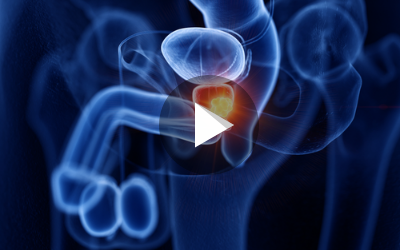According to National Institute of Health (NIH) more than 50% of the men who come under the age category of 60 and about 90% of those who are 70 suffer from enlarged prostate. Benign prostatic hyperplasia or BPH are other terms used for enlarged prostate.
Surgeon: Try This To Help Shrink Your Enlarged Prostate Quickly & Easily

Medical professionals are still trying to find the accurate cause of BPH and claim that an imbalance in the hormone functions can lead to symptoms of enlarged prostate. The main thing that strikes in peoples mind when they have an enlarged prostate is whether they suffer from prostate cancer or not. Well, luckily, a person suffering from an enlarged prostate need not always suffer from prostate cancer.
When Does It Occur
If you are wondering how a prostate would look like then imagine the gland to be the size of a walnut and the shape of a doughnut which skirts the urethra. Prostate gland is situated right under the bladder and is at the front of the rectum. Men have enlarged prostate when the cells near the urethra enlarge and squash it making the duck narrower. Even when the prostate cells get bigger and enter the urethra as well as block the bladder outlet makes the prostrate enlarge. However, the enlarged prostate or BPH can be surgically rectified.
Men At Risk
Every man who is above 50 years of age suffers from enlarged prostate. Rather, the main factor that influences the development of enlarged prostate is age. Even though scientists and researchers are yet to trace the root cause for enlarged prostate, hormonal imbalance is considered as one of the cause linked to this health condition. In a normal male body, the testes produce testosterone that is later converted into dihydrotestosterone (DHT) and estriadol (estrogen). Dihydrotestosterone is a type of hormone linked with the maturation of the prostate. According to a few medical professionals, when the DHT levels increases it starts getting collected under the tissues and eventually lead to atypical prostate development. Many researchers are putting all their efforts to find out the reason behind the increasing level of DHT in elderly men and in what way the hormones influence the growth of the prostate.
Checking For Enlarged Prostate
There are a few symptoms that you can link to enlarged prostate. A person suffering from enlarged prostate generally experience symptoms like trouble while passing urine, limited as well as irregular flow of urine, blood faces in the urine that is mostly seen due to the pressure given to urinate, dribbling after urination, a continual feel to urgently urinate and frequent urge to urinate. People who suffer from an acute condition of enlarged prostate also develop urinary retention where the urinary sphincter is incapable to let go the liquid excretion. A few types of prescribed medication or nonprescription drugs like antihistamines and decongestants contain epinephrine, ipratropium bromide, or albuterol that can aggravate the condition in many patients. Catheterization is considered a good drug that can relieve one of the pain and discomfort quickly.